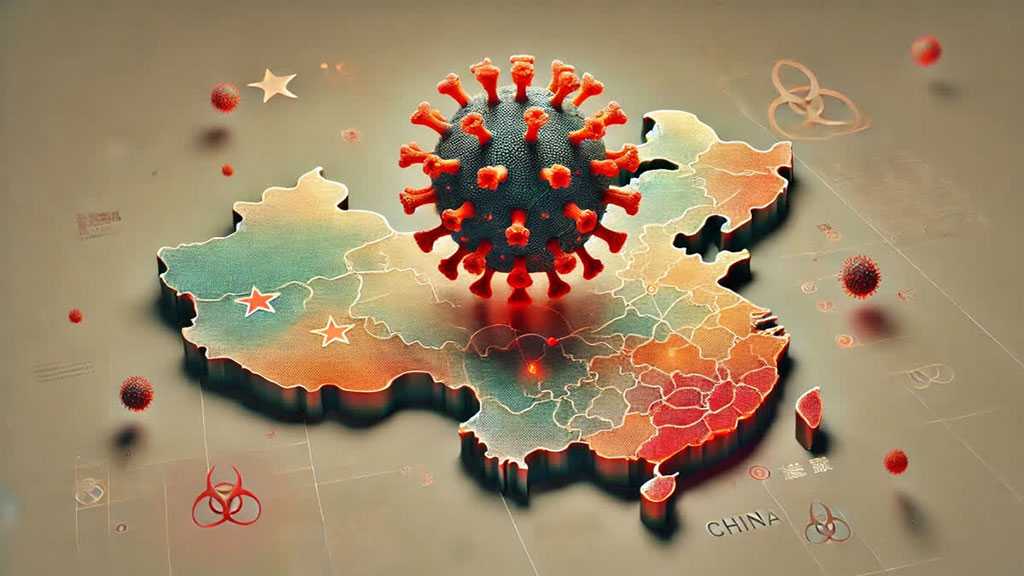
Not Another COVID-19: Surge in Respiratory Virus Cases Raises Alarms in China

By Al-Ahed News
China is witnessing a significant rise in infections caused by the human metapneumovirus [HMPV], leading to crowded hospitals, heightened public concerns, and the implementation of new monitoring measures.
This surge, predominantly affecting children, is concentrated in northern provinces and coincides with the winter season.
Photos and videos circulating on social media show people wearing masks in hospitals, drawing comparisons to the early days of the COVID-19 pandemic. However, Chinese health authorities have emphasized that these developments align with typical seasonal trends.
Health Officials Respond
Beijing has downplayed fears of a major outbreak, labeling the rise in respiratory infections as an annual winter occurrence. Foreign ministry spokesperson Mao Ning stated:
“Respiratory infections tend to peak during the winter season. The diseases appear to be less severe and spread on a smaller scale compared to the previous year.”
To manage the situation, China’s health authorities have initiated a pilot program to monitor pneumonia cases of unknown origin. The initiative ensures that laboratories and health agencies report and manage cases effectively, as highlighted in a recent state broadcaster CCTV report.
Understanding HMPV
Human metapneumovirus [HMPV] is a respiratory virus that can cause symptoms similar to the common cold or influenza. While the illness is often mild, it can lead to severe complications, including pneumonia, particularly in young children, the elderly, and those with compromised immune systems.
First identified in 2001, HMPV is a single-stranded RNA virus that spreads through respiratory droplets or contact with contaminated surfaces. Symptoms typically include cough, fever, nasal congestion, and fatigue, with an incubation period of three to six days.
Unlike COVID-19, there is no vaccine or specific antiviral treatment for HMPV. Medical care focuses on symptom management.
Regional and Global Outlook
The World Health Organization [WHO] has not classified the surge in HMPV cases as a global health emergency. However, neighboring regions, including Hong Kong, Cambodia and Taiwan, are closely monitoring the situation.
Hong Kong: Reports a few cases and remains vigilant.
Cambodia: Issued warnings, noting HMPV's similarities to COVID-19 and influenza.
Taiwan: Emphasized heightened risks for children, the elderly, and immunocompromised individuals.
India, another neighboring country, has sought to reassure its population. Dr. Atul Goel of the Directorate General of Health Services stated:
“Metapneumovirus is like any other respiratory virus that causes the common cold. For the very young and very old, it could cause flu-like symptoms, but there is no cause for panic.”
Official Reassurances
China’s National Disease Control and Prevention Administration reported an increase in respiratory infections, including HMPV, as consistent with seasonal trends. To alleviate concerns, the Chinese foreign ministry reassured citizens and visitors:
“The Chinese government cares about the health of Chinese citizens and foreigners coming to China. It is safe to travel in China.”
As colder weather and increased indoor activities continue to fuel the spread of respiratory viruses, health authorities emphasize vigilance and preventive measures to manage the surge effectively.


